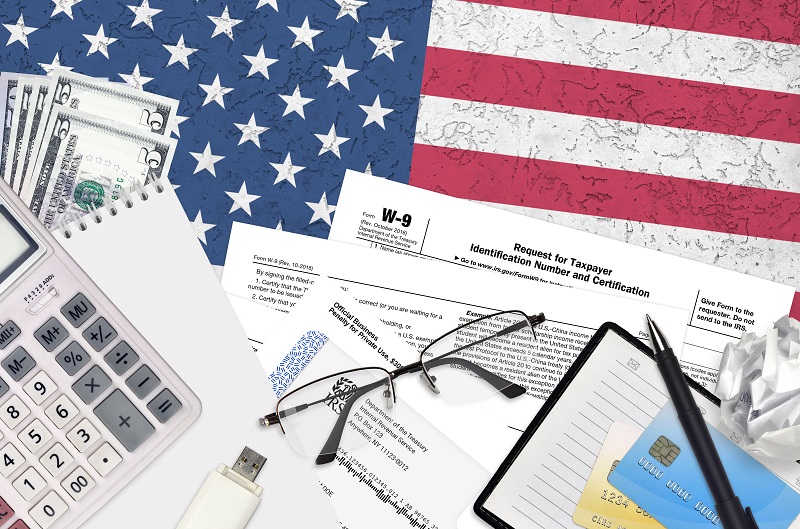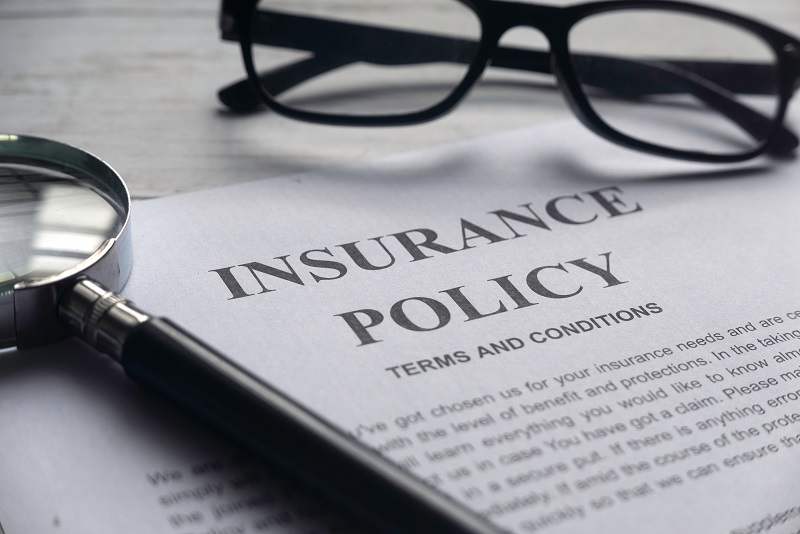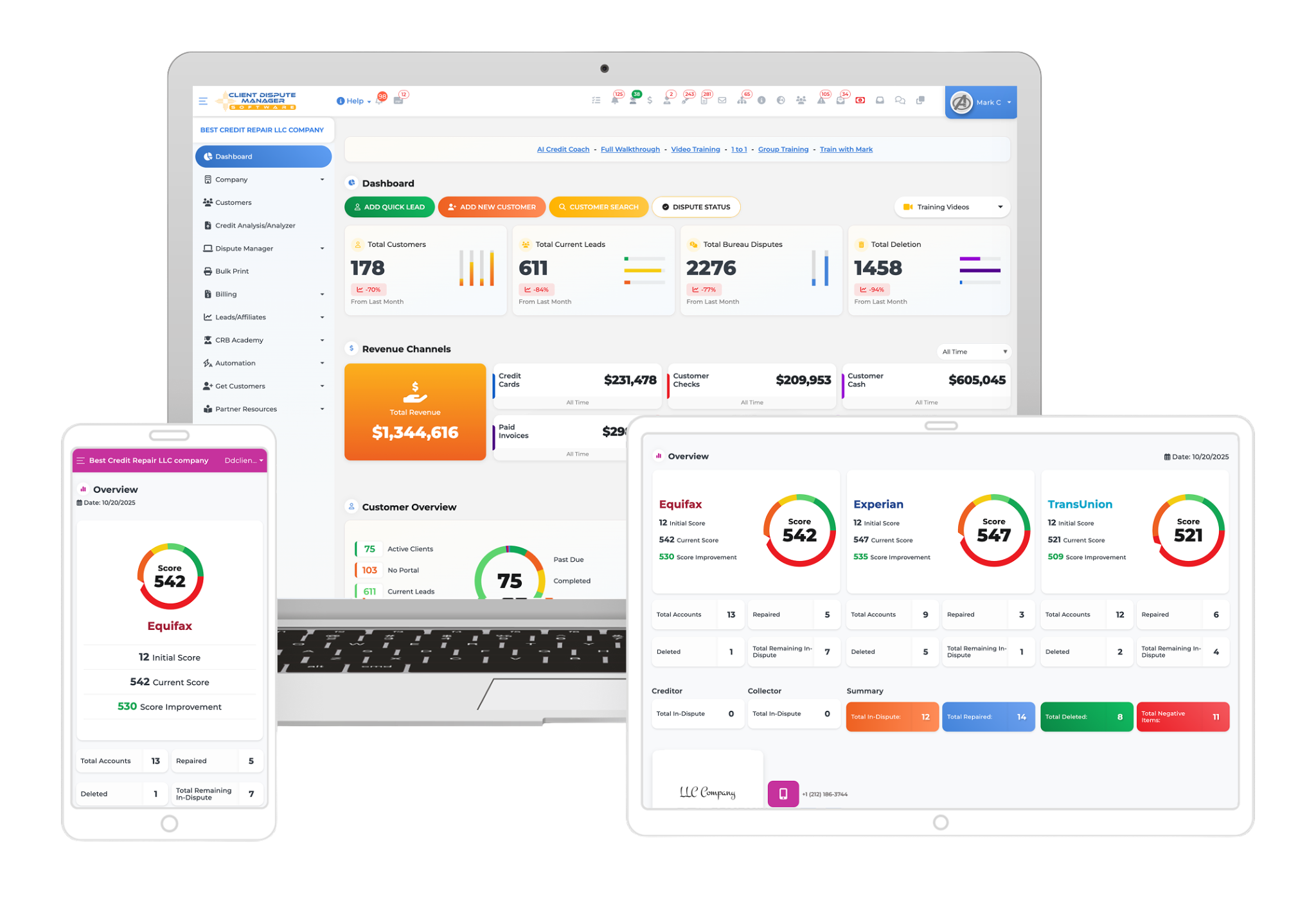Credit repair businesses play a crucial role in helping individuals and businesses improve their credit scores, but it’s important to adhere to the laws and regulations that govern this industry. In this article, we’ll take a closer look at the laws that apply to credit repair businesses in Connecticut.
Choose a Business Structure

Decide whether you want to operate as a sole proprietor, partnership, limited liability company (LLC), or corporation. Each structure has its pros and cons, so consult with a legal or financial advisor to determine the best fit for your business.
Sole Proprietorship:
A sole proprietorship is the simplest business structure, where an individual owns and operates the business. This structure does not provide personal liability protection, meaning the owner’s personal assets are at risk in case of debts or lawsuits. The owner reports the business income and expenses on their personal tax return.
Partnership:
A partnership is a business structure where two or more individuals share ownership and responsibilities. There are different types of partnerships, such as general partnerships, limited partnerships (LP), and limited liability partnerships (LLP).
In a general partnership, all partners share equal responsibility and liability, while in an LP or LLP, liability is limited for some partners. Partnership income and expenses are reported on a partnership tax return, and individual partners report their share of profits or losses on their personal tax returns.
Limited Liability Company (LLC):
An LLC is a hybrid structure that combines aspects of both corporations and partnerships. It provides limited liability protection to its owners (called members) and allows for flexibility in management and taxation.
LLCs can be taxed as a sole proprietorship, partnership, or corporation, depending on the number of members and their election with the IRS. Profits and losses pass through to the members’ personal tax returns, but members can also choose to be taxed as a corporation.
Corporation:
A corporation is a separate legal entity, owned by shareholders and managed by a board of directors. Corporations offer personal liability protection to shareholders, but they are subject to double taxation. This means that the corporation pays taxes on its income at the corporate level, and shareholders pay taxes on dividends received from the corporation on their personal tax returns.
There are two common types of corporations: C corporations and S corporations. S corporations have a special tax status that allows profits and losses to pass through to shareholders’ personal tax returns, avoiding double taxation.
Register Your Business

If you choose to form an LLC or corporation, you’ll need to file the necessary paperwork with the Connecticut Secretary of State. If you’re operating as a sole proprietor, you may need to register a trade name.
Choose A Business Name:
Select a unique and appropriate name for your credit repair business. Make sure the name is available by checking the Connecticut Secretary of State’s business name database.
Choose A Business Structure:
Decide on the most suitable structure for your credit repair business, such as a sole proprietorship, partnership, limited liability company (LLC), or corporation.
Register with the Connecticut Department of Revenue Services (DRS):
If your business is required to collect sales tax or pay other taxes, you may need to register with the DRS. Check their website for specific registration requirements.
Obtain Necessary Licenses and Permits:
Check with the Connecticut Secretary of State, the Connecticut Department of Revenue, and your local city or county clerk to determine if you need any business licenses or permits to operate a credit repair business in Connecticut.
Maintain Ongoing Compliance:
Depending on your business structure, you may need to file annual reports or other periodic filings with the Connecticut Secretary of State. Keep track of these requirements to maintain good standing with the state.
Obtain an Employer Identification Number (EIN)

Apply for an EIN from the Internal Revenue Service (IRS) if you plan to hire employees or if your business is an LLC or corporation.
Determine Your Eligibility:
Make sure you have a valid Social Security Number (SSN), Individual Taxpayer Identification Number (ITIN), or other Taxpayer Identification Number (TIN) before applying, as it is required for the EIN application.
Apply Online:
The fastest and easiest way to obtain an EIN is through the IRS’s online application process. Visit the IRS website and search for “EIN” or go directly to the online EIN application page. The application is available Monday through Friday, from 7 a.m. to 10 p.m. Eastern Time.
Complete The Application:
Fill in the required information about your business, such as the legal name, trade name (if applicable), business structure, responsible party, and contact information. You’ll also need to provide details about your credit repair business, such as the number of employees, if any, and the principal activity of your business.
Submit The Application:
Review your information, then submit the application. If your application is approved, you’ll receive your EIN immediately. Make sure to save or print the confirmation notice, as the IRS will not send a duplicate copy.
Apply By Mail Or Fax:
If you prefer not to apply online or cannot access the online application, you can complete Form SS-4, Application for Employer Identification Number, and mail or fax it to the IRS. The mailing address and fax number can be found in the Form SS-4 instructions. Note that applying by mail or fax will take longer than applying online.
Open A Business Bank Account

To separate your personal and business finances, open a business bank account and obtain a business credit card if needed.
Choose A Bank and Type of Account:
Research various banks and credit unions in Connecticut to find the one that best meets your business needs. Consider factors such as fees, minimum balance requirements, and available services. Decide whether you want to open a business checking account, savings account, or both.
Gather Required Documentation:
To open a business bank account, you’ll need to provide certain documents and information. While requirements may vary between banks, you’ll generally need the following:
a. Employer Identification Number (EIN) or Social Security Number (SSN) if you are a sole proprietor.
b. Business formation documents, such as:
- Certificate of Organization and Operating Agreement for an LLC
- Certificate of Incorporation and bylaws for a corporation
- Certificate of Partnership for a partnership
c. Trade Name Certificate or Certificate of Assumed Name (if applicable)
d. Business licenses or permits, if required by your city or state
e. Personal identification, such as a driver’s license or passport, for all account signatories
Visit The Bank:
Go to your chosen bank’s local branch to open the account. It’s a good idea to call ahead and schedule an appointment with a business banking specialist who can guide you through the process.
Complete The Bank's Application:
Fill out the application form provided by the bank, and submit it along with the required documentation. The bank may also require you to provide information about your business, such as its purpose, estimated annual revenue, and details about the owners or signatories.
Deposit The Required Funds:
Many banks require an initial deposit to open a business bank account. Make sure you have the necessary funds available and are aware of any minimum balance requirements.
Order Checks And A Business Debit Card:
Once your account is open, order business checks and a debit card for your credit repair business.
Set Up Online Banking:
Enroll in online banking services to manage your business finances conveniently and securely.
Obtain Necessary Permits and Licenses

Check with the Connecticut Secretary of State, the Connecticut Department of Revenue, and your local city or county clerk to determine if you need any business licenses or permits to operate a credit repair business in Connecticut.
Business Registration:
As mentioned earlier, you need to register your business with the Connecticut Secretary of State, depending on your chosen business structure.
Connecticut Unfair Trade Practices Act (CUTPA):
Ensure that your credit repair business complies with the CUTPA, which prohibits businesses from engaging in unfair or deceptive practices.
Consumer Protection Laws:
Familiarize yourself with the Connecticut Department of Consumer Protection’s guidelines and regulations, as they may apply to credit repair businesses.
Local Permits and Licenses:
Check with your local city or town clerk’s office to determine if there are any specific permits, licenses, or registrations required for your credit repair business. This could include zoning permits or home occupation permits, depending on your location and type of operation.
Connecticut Taxes:
Register with the Connecticut Department of Revenue Services (DRS) if you are required to collect sales tax or pay other taxes for your business.
Workers' Compensation:
If you hire employees, you may be required to carry workers’ compensation insurance in Connecticut.
Unemployment Insurance Tax:
Employers in Connecticut are generally required to pay unemployment insurance tax, which is administered by the Connecticut Department of Labor.
State and Local Tax Withholding:
If you have employees, you are responsible for withholding and remitting state and local income taxes on their behalf.
Familiarize Yourself with Credit Repair Organizations Act (CROA) And State Regulations

The CROA is a federal law that governs credit repair businesses, and Connecticut may have its own set of regulations. Ensure that you understand and comply with these laws to avoid any legal issues.
Credit Repair Organizations Act (CROA):
At the federal level, credit repair businesses are regulated by the CROA, which establishes guidelines and requirements for credit repair companies, including prohibited practices and mandatory disclosures. Ensure you are familiar with and adhere to these regulations.
Connecticut Unfair Trade Practices Act (CUTPA):
Ensure that your credit repair business complies with the CUTPA, which prohibits businesses from engaging in unfair or deceptive practices. The Connecticut Department of Consumer Protection enforces the CUTPA, and violations can lead to fines, penalties, and injunctions.
Business Registration:
Register your business with the Connecticut Secretary of State, depending on your chosen business structure, and follow any ongoing compliance requirements.
Taxes and Employer Obligations:
Register with the Connecticut Department of Revenue Services (DRS) if you are required to collect sales tax, pay other taxes, or have employees. Comply with employer-related obligations such as workers’ compensation, unemployment insurance tax, and state and local tax withholding.
Local Permits and Licenses:
Check with your local city or town clerk’s office to determine if there are any specific permits, licenses, or registrations required for your credit repair business. This could include zoning permits, home occupation permits, or business licenses, depending on your location and type of operation.
Create Contracts and Disclosure Statements

Draft contracts and disclosure statements that are compliant with federal and state regulations. This typically includes a written contract detailing services and terms, as well as a disclosure statement that informs clients of their rights.
A Written Contract:
The contract must be written and provided to the consumer before any credit repair services are rendered.
Consumer's Right to Cancel:
The contract must inform the consumer of their right to cancel the contract within three business days from the date it was signed, without any penalty or obligation.
Services To Be Performed:
The contract must clearly outline the specific services to be provided, including any guarantees or warranties.
Timeframe For Services:
The contract must specify the expected timeframe for the completion of the promised services or the time it will take to achieve the desired results.
CROA Disclosure Statement:
The CROA requires credit repair organizations to provide a separate, clear, and conspicuous written disclosure statement to the consumer before the contract is signed. The disclosure statement must include:
- The consumer’s right to dispute inaccurate information in their credit report without the assistance of a credit repair organization.
- The consumer’s right to obtain a copy of their credit report from a credit reporting agency, free of charge, under certain circumstances.
- The consumer’s right to sue a credit repair organization that violates the CROA.
Obtain Insurance

Consider obtaining general liability insurance to protect your business from potential financial losses due to lawsuits or other issues.
General Liability Insurance:
This insurance protects your business from claims arising from third-party bodily injuries, property damage, and personal or advertising injuries. It can cover legal fees, settlements, and medical payments in case of a lawsuit.
Professional Liability Insurance (Errors & Omissions):
This insurance protects your business from claims of negligence, errors, or omissions in the professional services you provide. As a credit repair business, you might be held liable for mistakes or oversights in credit repair advice or actions, making this insurance particularly important.
Commercial Property Insurance:
This insurance covers your business property, such as office equipment, furniture, and computers, in the event of damage or loss due to events like fire, theft, or natural disasters.
Business Owner's Policy (BOP):
A BOP combines general liability insurance and commercial property insurance into one policy. It’s designed for small businesses and can be a more cost-effective option compared to purchasing separate policies.
Workers' Compensation Insurance:
If you have employees, you are generally required to carry workers’ compensation insurance in Connecticut. This insurance covers medical expenses, lost wages, and rehabilitation costs for employees who suffer work-related injuries or illnesses.
Cyber Liability Insurance:
As a credit repair business, you may handle sensitive client information. Cyber liability insurance can protect your business from financial losses resulting from data breaches, hacking, or other cyber threats.
Commercial Auto Insurance:
If your business uses vehicles for work-related purposes, you may need commercial auto insurance to cover damages or injuries resulting from accidents involving your business vehicles.
Develop A Marketing Strategy:
Build a professional website, create social media profiles, and develop a plan to attract and retain clients. Be aware that advertising restrictions apply to credit repair businesses, so familiarize yourself with the regulations before marketing your services.
Define Your Target Audience:
Identify the demographics and characteristics of your ideal clients, such as age, income level, credit score range, and location. This will help you tailor your marketing efforts to reach the right people.
Research The Local Market:
Analyze the credit repair market in Connecticut, including the size of the market, the level of competition, and any specific trends or pain points that clients in the state may face. This information will help you position your business effectively and identify opportunities for growth.
Develop A Unique Value Proposition:
Determine what sets your credit repair business apart from competitors. This could be your expertise, the quality of your services, or your customer service. Emphasize your unique selling points in your marketing materials.
Build An Online Presence:
Create a professional website that showcases your services, provides information about your business, and includes customer testimonials. Optimize your website for search engines (SEO) to help potential clients find you when they search for credit repair services in Connecticut.
Utilize Social Media:
Create and maintain profiles on popular social media platforms such as Facebook, Instagram, Twitter, and LinkedIn. Share valuable content, engage with your audience, and promote your services to attract potential clients.
Content Marketing:
Develop educational and informative content, such as blog posts, articles, and videos, to showcase your expertise and help potential clients understand the credit repair process. Share this content on your website, social media profiles, and relevant online forums or communities.
Email Marketing:
Build an email list of potential clients and send them regular newsletters, updates, and promotional offers. Use email marketing tools to automate and optimize your campaigns.
Local Advertising:
Consider advertising in local newspapers, magazines, radio stations, or on billboards to reach potential clients in your target area.
Network And Build Partnerships:
Attend local events, join business associations, and network with professionals in related industries, such as mortgage brokers, real estate agents, and financial advisors. Building partnerships can lead to referrals and help you establish a reputation within the community.
Monitor And Adjust Your Strategy:
Continuously track the performance of your marketing efforts using analytics tools and adjust your strategy as needed. Pay attention to which channels and tactics are generating the most leads and conversions, and focus your resources on those areas.
Stay Informed

Keep up-to-date with industry trends, changes in regulations, and best practices to ensure your credit repair business remains compliant and competitive.
Subscribe To Industry Newsletters And Publications:
Sign up for newsletters, magazines, or online publications that focus on the credit repair industry, consumer finance, or relevant regulatory updates.
Join Professional Associations:
Become a member of credit repair or financial industry associations, such as the National Association of Credit Services Organizations (NACSO) or the American Fair Credit Council (AFCC). These organizations often provide resources, updates, and networking opportunities to their members.
Attend Industry Conferences And Events:
Participate in credit repair, financial, or regulatory conferences, and events, either in-person or online. These events can provide valuable insights, updates, and networking opportunities.
Monitor Relevant Government Websites:
Regularly visit the websites of relevant government agencies, such as the Connecticut Department of Banking, the Connecticut Department of Consumer Protection, and the Federal Trade Commission (FTC). These websites often post updates on regulations and industry news.
Follow Industry Influencers And Experts:
Engage with credit repair and financial industry influencers, experts, and thought leaders on social media platforms, such as LinkedIn and Twitter. By following their content, you can gain insights into industry trends and best practices.
Participate In Online Forums And Discussion Groups:
Join credit repair, financial, and regulatory online forums or discussion groups to stay informed about industry news and trends. These communities can provide valuable insights and opportunities to learn from other professionals.
Enroll In Continuing Education Courses Or Workshops:
Attend courses, workshops, or webinars on credit repair, financial regulations, or business management to keep your knowledge and skills up-to-date.
Network With Peers And Professionals:
Build relationships with other credit repair business owners and professionals in related industries. Sharing experiences and insights can help you stay informed about changes and trends in the industry.
Set Up Google Alerts:
Create Google Alerts for relevant keywords, such as “credit repair,” “Connecticut regulations,” or “consumer finance.” This will ensure you receive notifications when new articles or news items related to your chosen keywords are published online.
Ready to start your credit repair business in Connecticut?
Make sure you are informed and compliant with the latest state laws.
Click now to learn more.
Regularly Review Your Business Practices:
Periodically assess your business practices to ensure they align with current regulations and industry best practices. Adjust your processes and procedures as necessary to remain compliant and competitive.
Bonus: Now that you have read this article, why not take your new skill and start your own credit business helping others? We have free training that can help you do just that.


